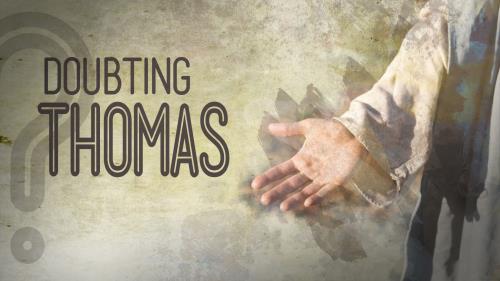-
2nd Sunday In Lent, Year C. Series
Contributed by Christopher Holdsworth on Jul 31, 2024 (message contributor)
Summary: March 16th, 2025.
Genesis 15:1-12, Genesis 15:17-18, Psalm 27:1-14, Philippians 3:17-21, Philippians 4:1, Luke 13:31-35, Luke 9:28-43.
A). CUTTING A COVENANT WITH THE LORD.
Genesis 15:1-12, Genesis 15:17-18.
After the battle of the kings, Abram no doubt would have had a rush of emotion. First of all, perhaps, elation: look what God has enabled me to do with a small household army (Genesis 14:14-16). Secondly, a sudden realisation: I’ve just picked a fight with powerful kings, kings who invaded several other kingdoms simply because they refused to pay taxes (Genesis 14:4). Thirdly - perhaps not dissimilar to the reaction of the victorious Elijah who had single-handedly beaten 400 Baal prophets, then ran in sheer terror when the woman Jezebel said, “Boo” (1 Kings 19:1-3) - the last reaction is fear.
Abram was no doubt in a state of fear when the word of the LORD came to him (Genesis 15:1). That is how it is sometimes with spiritual battles: we return from the field exhausted, and our joy soon turns to discouragement. Yet it is just at this point that the Lord steps in with a word of encouragement.
The phrase “the word of the LORD came to Abram” actually marks him out as a prophet (cf. Genesis 20:7). Repeated in Genesis 15:4, this is the only time that this particular formula is used in the books of Moses. Yet Moses’ desire that all God’s people should become prophets (Numbers 11:29) was fulfilled at Pentecost (Acts 2:16-18), and Christian people are also able to hear the word of the Lord.
We are not only told to vanquish fear, but we are also given a word of comfort and reassurance (Genesis 15:1). First, the LORD sets Himself as our shield: we cannot see Him as such, but the Word tells us that He is there. This was the experience of Moses and the children of Israel (Deuteronomy 33:29), and is also the portion of the righteous in all ages (Psalm 5:12).
Second, our great reward for stepping out in faith - as Abram had done when he selflessly risked his own life to save those who were in bondage - is further manifestations of the LORD Himself. Of course, Abram looked for the reward in the earlier promise of being made into a nation (Genesis 12:2) - yet to the old man that promise seemed remote and impossible: as things appeared at this time, a slave born into his household was his heir (Genesis 15:2-3). It is good to give reverent voice to our concerns, because faith requires exercise in order for it to grow.
Again the Word of the LORD came to Abram, and the LORD reassured his servant that he would have a son of his own to be his heir (Genesis 15:4), and that his seed would be as numerous as the stars in the sky (Genesis 15:5). Even with the best of telescopes located outside of the earth’s atmosphere, we are still unable to see all the stars in all the systems of God’s creation. Yet in time, the promise was fulfilled (Hebrews 11:11-12).
Abram chose to believe God rather than his own doubts and fears (Genesis 15:6). He took no account of the “deadness” of his own body, nor the unproductiveness of Sarai’s (Romans 4:19-21). The LORD accounted Abram’s faith as righteousness, and he became “the father of the faithful” (cf. Galatians 3:29).
The priest-king Melchisedec knew God Most High, maker of heaven and earth (Genesis 14:18-19). This same God had led Abram out of his father’s house, and now identified Himself as “the LORD” - the One who was, and is, and continues to be (Genesis 15:7). Such a God could not, would not, fail to accomplish the thing which He had promised: a land, and offspring to inhabit it.
“How shall this be?” Abram reverently inquired (Genesis 15:8). The father of the faithful was not afraid to engage in familiar conversation with the LORD. However, we must be careful how we question God: the unreasonable and impertinent doubt of Zacharias brought temporal judgement, albeit temporarily (Luke 1:18-20); whereas the humble and honest questioning of Mary brought reassurance (Luke 1:34; Luke 1:38).
The answer of the LORD came first with a visual aid, but also with words. The visual aid was the cutting of a covenant (Genesis 15:9-11; Genesis 15:17). The words spoke of things to come which gave Abram more than a little sense of foreboding (Genesis 15:12-16), but which would all work out in the end (Genesis 15:18-20).
First of all, five sacrifices were required (Genesis 15:9). These were divided between the parties to the covenant, which indicates to us that there is no communion with God without the shedding of blood (Genesis 15:10). From one night (Genesis 15:5) to the next (Genesis 15:17), Abram guarded the sacrifices from scavenging birds (Genesis 15:11) - just as surely as we must watch over our spiritual praise and sacrifice, that it does not become tainted by the distractions of the world.

 Sermon Central
Sermon Central



